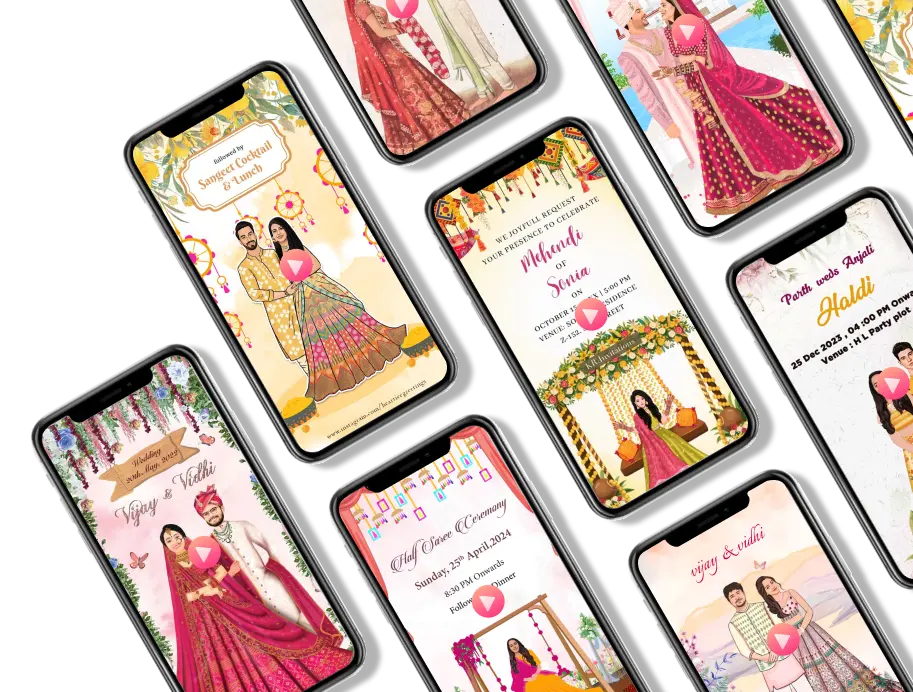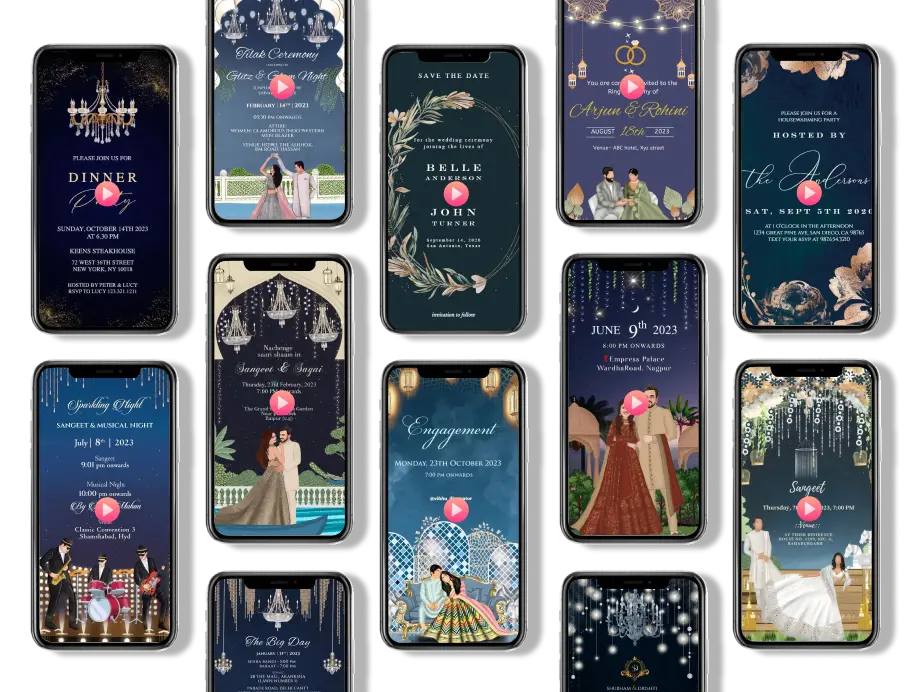South Indian weddings are known for their grandeur, cultural richness, and deep-rooted spiritual significance. The wedding ceremonies differ slightly across the different states of South India, such as Tamil Nadu, Kerala, Andhra Pradesh, and Karnataka, but they all share common themes of love, respect, and family. The weddings are marked by a series of intricate rituals, each with its own unique symbolism, making South Indian weddings one of the most beautiful and meaningful celebrations in the world.
Historical and Cultural Significance of South Indian Weddings
In South India, marriage is considered a sacred and divine institution. It is not only the union of two individuals but also the coming together of two families, cultures, and traditions. The foundation of South Indian weddings is based on the ancient Hindu customs and beliefs that emphasize values like respect, unity, and the importance of family.
The significance of South Indian weddings extends beyond the wedding day itself, with the rituals taking place over several days. These celebrations are meant to ensure the couple's harmony, prosperity, and spiritual growth in their married life. Every ritual performed in a South Indian wedding has its own unique meaning and is performed with great reverence.
South Indian Wedding Rituals and Customs
South Indian weddings are known for their elaborate and meaningful rituals. Below are some of the key rituals commonly seen in a South Indian wedding:
1. Nischayathartham (Engagement Ceremony)
The wedding journey begins with the Nischayathartham ceremony, which is the official engagement. During this ceremony, both families come together and exchange gifts, which signifies the formal agreement to proceed with the wedding. This ceremony is usually followed by prayers and blessings from the elders of the family.
2. Kashi Yatra (The Groom's Departure)
The Kashi Yatra is a unique ritual that is primarily observed in Tamil and Telugu weddings. In this ritual, the groom pretends to leave for Kashi (the sacred city of Varanasi) to pursue spiritual knowledge. His bride-to-be, upon seeing him leave, runs after him and convinces him to return and marry her. This ceremony symbolizes the groom’s shift from a life of materialistic pursuits to that of marriage and family life.
3. The Muhurtham (Auspicious Wedding Time)
The Muhurtham is the most auspicious time during the wedding ceremony. This is the time when the couple is united in marriage, and it is carefully calculated based on the astrological positions of the stars and planets. The Muhurtham is considered the most important moment, as it is believed that it brings divine blessings to the couple.
4. The Oonjal (Swing Ceremony)
The Oonjal or swing ceremony is a joyful occasion during which the bride and groom sit on a decorated swing while their family and friends sing traditional wedding songs. The swing symbolizes the first steps the couple will take together as they begin their married life. This ritual represents the balance of the couple’s life, where they will support each other in both good and bad times.
5. The Thali or Mangalsutra Ceremony
The Thali or Mangalsutra is the most important ritual in any South Indian wedding. The groom ties the sacred thread around the bride's neck, symbolizing her new status as a married woman. This thread is also known as the "Thali" in Tamil and "Mangalsutra" in other South Indian languages. The Thali symbolizes the groom's commitment and the bride's acceptance of her role in the marriage.
6. Saptapadi (Seven Steps Around the Sacred Fire)
The Saptapadi is a crucial part of the South Indian wedding ceremony. The couple takes seven steps around the sacred fire, with each step representing a vow or promise they make to each other for a prosperous life. These vows symbolize the couple’s commitment to their marriage, family, and spiritual journey together.
7. The Vidaai (Bride’s Farewell)
The Vidaai marks the emotional farewell of the bride from her parental home. This moment symbolizes the bride's transition from her family to that of her husband’s. It is often an emotional and poignant moment for both families, as they bid farewell to the bride, sending her off with blessings for a happy married life.
Attire and Decorations in South Indian Weddings
South Indian weddings are known for their beautiful attire and decorations. The bride typically wears a traditional silk saree, often in vibrant colors like red, gold, or green, adorned with intricate designs and heavy jewelry. The groom usually wears a dhoti or a formal wedding outfit called a sherwani. The attire is a reflection of the cultural heritage of the region, with each piece holding symbolic meaning.
Traditional wedding decorations include flowers, especially jasmine, which is believed to bring good luck and prosperity. The wedding mandap (canopy) is often decorated with flowers, mango leaves, and coconuts. These natural elements are symbolic of fertility and prosperity in the couple's married life.
Spiritual and Cultural Significance
At the heart of South Indian weddings is the idea that marriage is a sacred bond ordained by the gods. The rituals that are performed during the ceremony are meant to invoke divine blessings for the couple’s journey together. The sacred fire (Agni) represents purity, while the vows and prayers offer the couple strength to navigate through life's challenges.
South Indian weddings also emphasize the importance of family. Family members are deeply involved in the ceremony, offering blessings and support. The unity of the two families is celebrated, and the entire wedding process underscores the significance of shared traditions and values.
Conclusion
South Indian weddings are much more than just a union of two people. They are a celebration of love, culture, and spirituality. The rituals, traditions, and customs followed in South Indian weddings not only bring the couple closer together but also help them grow spiritually and strengthen their bond with each other and with their families. Whether you are attending one or planning your own South Indian wedding, understanding the cultural and spiritual significance of each ritual will make the experience even more meaningful and memorable.


